7 Activities for Better Sleep
1. Reading
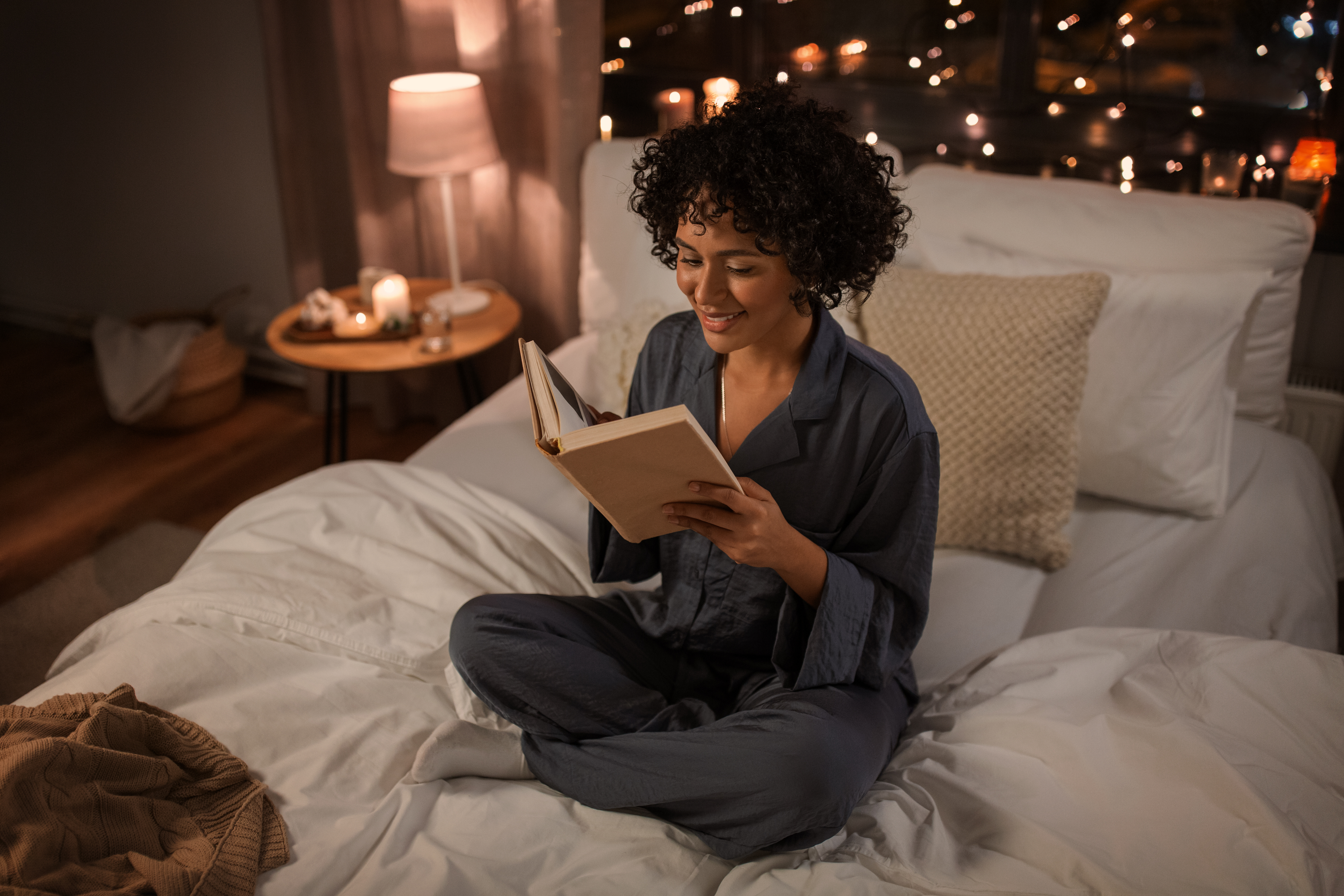 Many people carry the habit of bedtime reading from childhood into their adult lives, and it can continue to support healthy sleep patterns. To make the most of this routine, it’s wise to avoid stimulating genres such as thrillers or action-packed stories. Opt instead for something calming or low in intensity. Consider reading in a cozy, softly lit area outside the bedroom. When you start to feel naturally drowsy, that’s your cue to head to bed and let sleep take over.
Many people carry the habit of bedtime reading from childhood into their adult lives, and it can continue to support healthy sleep patterns. To make the most of this routine, it’s wise to avoid stimulating genres such as thrillers or action-packed stories. Opt instead for something calming or low in intensity. Consider reading in a cozy, softly lit area outside the bedroom. When you start to feel naturally drowsy, that’s your cue to head to bed and let sleep take over.
2. Journaling
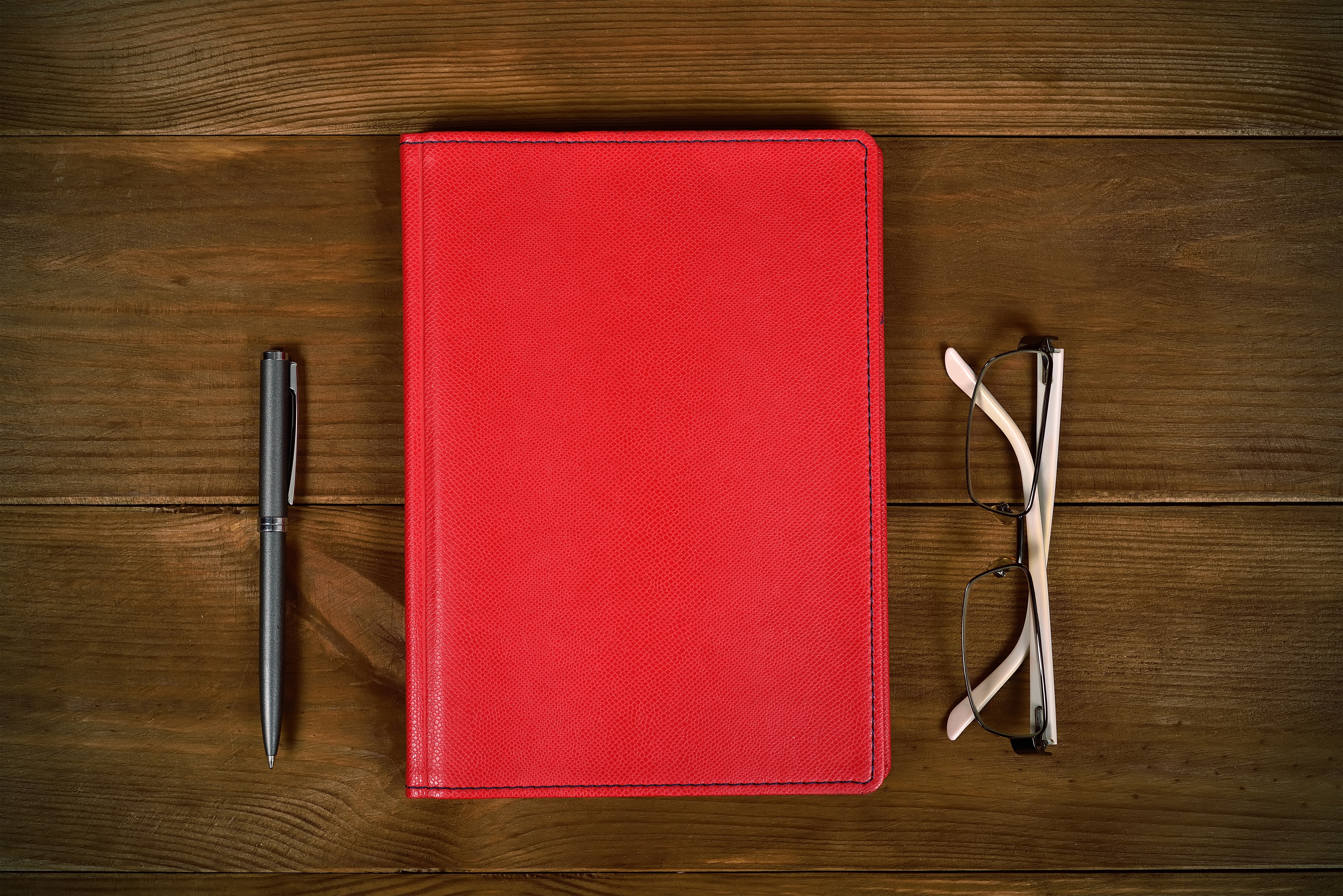 Journaling can be a calming and reflective practice for many, especially when done at the end of the day. Spending a few moments before bed to jot down key events or experiences can help you process your thoughts and emotions. Not only does this promote mental clarity and emotional release, but it also creates a personal record that can offer valuable insight into how your life is unfolding over time. If journaling feels like too much, starting with something simpler—like a to-do list—can be just as helpful. Research has shown that spending just five minutes before bed writing down tasks for the coming days can actually help you fall asleep faster. Putting your thoughts on paper can ease your mind by giving you a sense of control, helping to reduce anxiety about what lies ahead.
Journaling can be a calming and reflective practice for many, especially when done at the end of the day. Spending a few moments before bed to jot down key events or experiences can help you process your thoughts and emotions. Not only does this promote mental clarity and emotional release, but it also creates a personal record that can offer valuable insight into how your life is unfolding over time. If journaling feels like too much, starting with something simpler—like a to-do list—can be just as helpful. Research has shown that spending just five minutes before bed writing down tasks for the coming days can actually help you fall asleep faster. Putting your thoughts on paper can ease your mind by giving you a sense of control, helping to reduce anxiety about what lies ahead.
3. Light Snacks and Tea
 Eating a large meal or drinking alcohol too close to bedtime can cause issues like indigestion, acid reflux, or frequent trips to the bathroom—interrupting your sleep. On the flip side, trying to sleep on an empty stomach can also be uncomfortable and make it harder to drift off. The key is to strike a balance with a small, soothing snack, such as yogurt or a piece of fruit. Certain foods like cherries, grapes, kiwi, rice, and nuts have been linked to better sleep. You might also consider a cup of non-caffeinated herbal tea; blends with chamomile or lavender are especially known for their calming effects.
Eating a large meal or drinking alcohol too close to bedtime can cause issues like indigestion, acid reflux, or frequent trips to the bathroom—interrupting your sleep. On the flip side, trying to sleep on an empty stomach can also be uncomfortable and make it harder to drift off. The key is to strike a balance with a small, soothing snack, such as yogurt or a piece of fruit. Certain foods like cherries, grapes, kiwi, rice, and nuts have been linked to better sleep. You might also consider a cup of non-caffeinated herbal tea; blends with chamomile or lavender are especially known for their calming effects.
4. Warm Bath
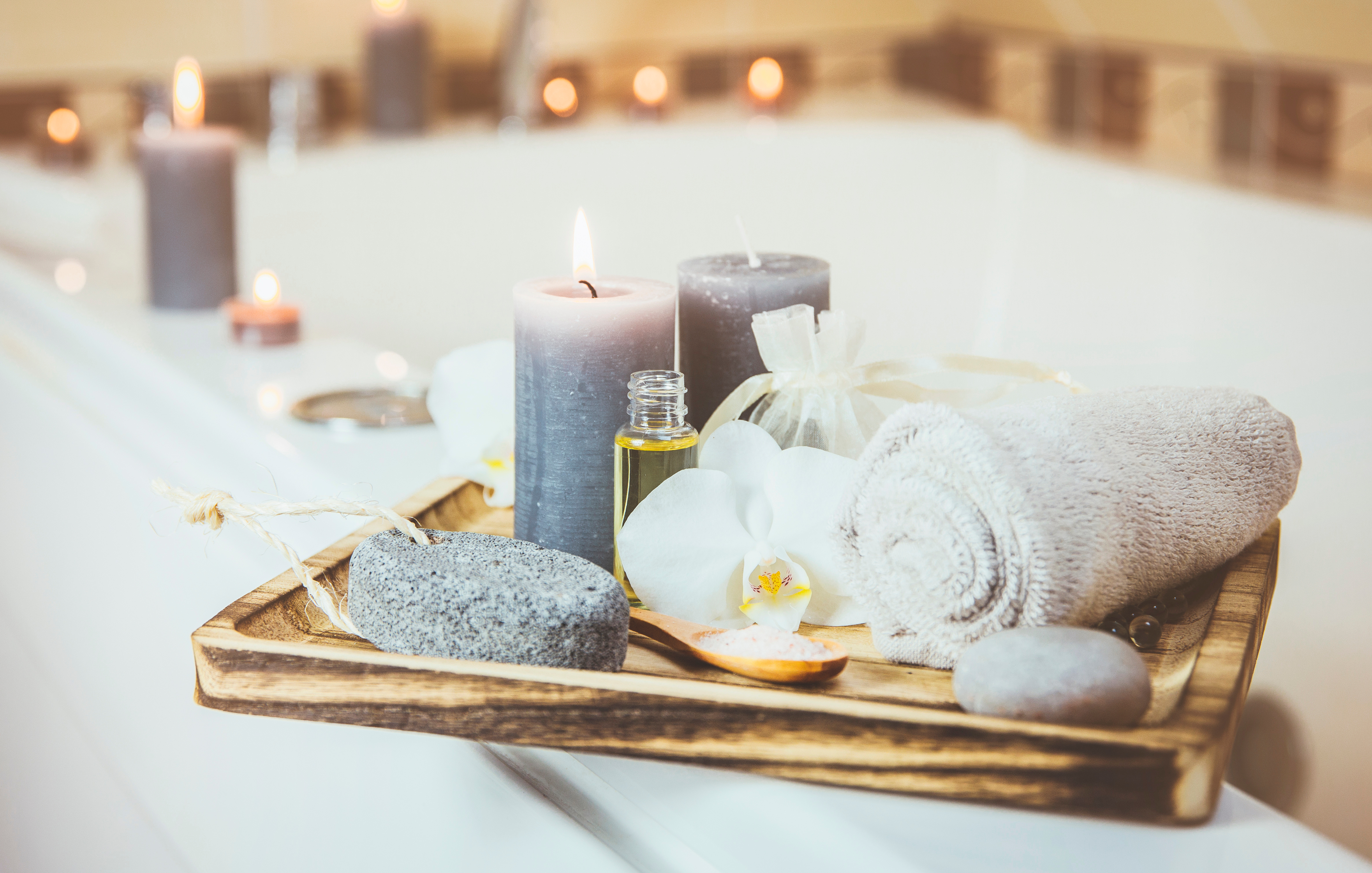 Your body undergoes various metabolic changes throughout the day as part of the sleep-wake cycle. One important change is the production of melatonin in the evening, which helps signal that it’s time for rest, along with a natural decrease in your core body temperature. Research has shown that mimicking this drop in body temperature with a warm bath can help promote the same drowsy feeling. Taking a warm bath at least an hour before bed can be particularly effective. As your body absorbs heat from the water and then cools down rapidly when the water evaporates, it triggers a relaxation response that makes it easier to unwind and fall asleep.
Your body undergoes various metabolic changes throughout the day as part of the sleep-wake cycle. One important change is the production of melatonin in the evening, which helps signal that it’s time for rest, along with a natural decrease in your core body temperature. Research has shown that mimicking this drop in body temperature with a warm bath can help promote the same drowsy feeling. Taking a warm bath at least an hour before bed can be particularly effective. As your body absorbs heat from the water and then cools down rapidly when the water evaporates, it triggers a relaxation response that makes it easier to unwind and fall asleep.
5. Stretch, Breathe, and Relax
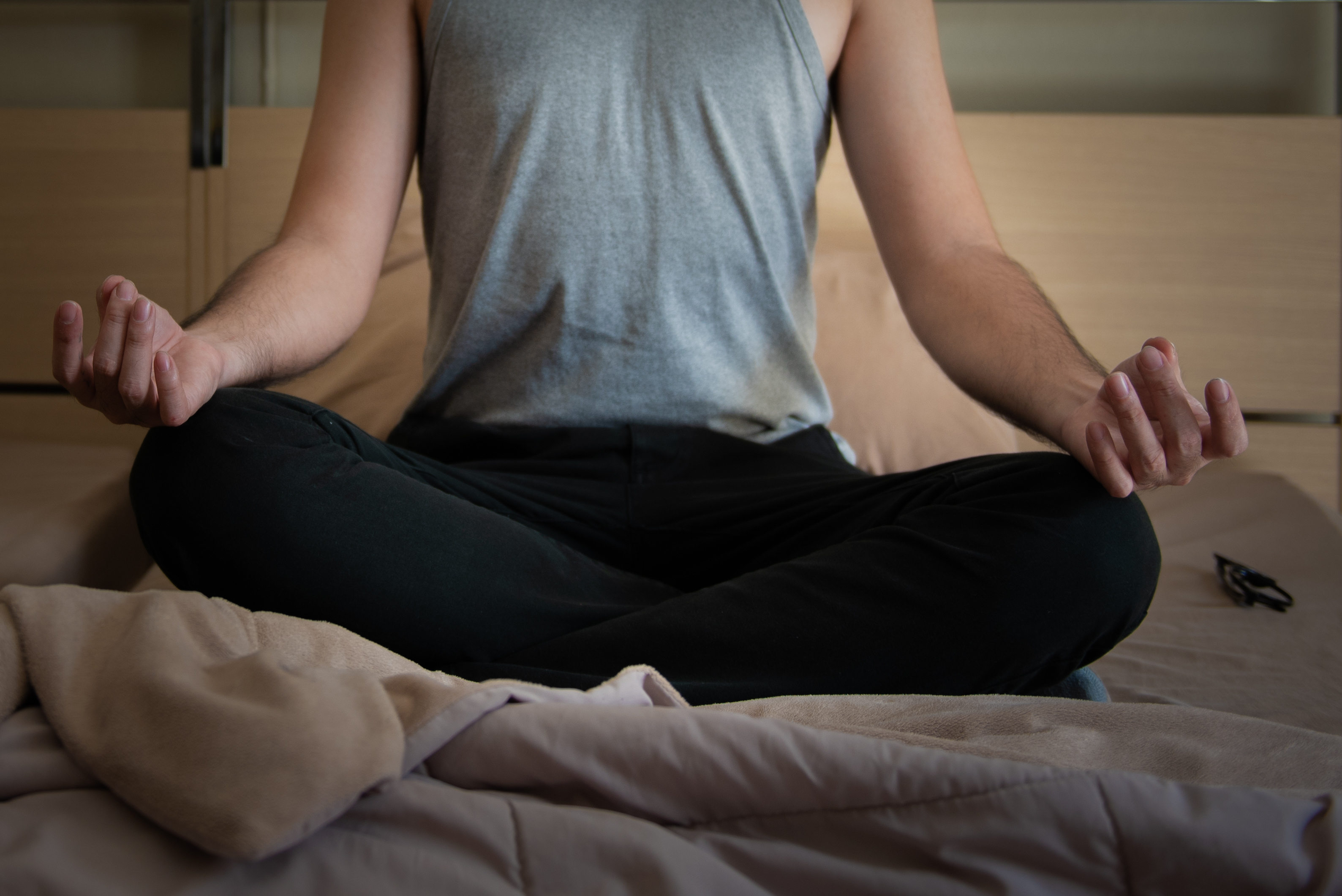 Relaxation techniques, such as deep breathing exercises or progressive muscle relaxation (PMR), can be incredibly effective in easing both physical and mental tension by helping you direct your focus inward and consciously relax. Incorporating a regular yoga routine has been shown to enhance sleep quality, while simple stretches or a light massage before bed can help prevent muscle cramps. Much like yoga, consistent meditation practice can also boost your sleep. Mindfulness meditation, in particular, helps you accept your thoughts and manage emotions, promoting a peaceful mindset that makes it easier to fall asleep, rather than stressing over the inability to do so.
Relaxation techniques, such as deep breathing exercises or progressive muscle relaxation (PMR), can be incredibly effective in easing both physical and mental tension by helping you direct your focus inward and consciously relax. Incorporating a regular yoga routine has been shown to enhance sleep quality, while simple stretches or a light massage before bed can help prevent muscle cramps. Much like yoga, consistent meditation practice can also boost your sleep. Mindfulness meditation, in particular, helps you accept your thoughts and manage emotions, promoting a peaceful mindset that makes it easier to fall asleep, rather than stressing over the inability to do so.
6. Listen to calming music
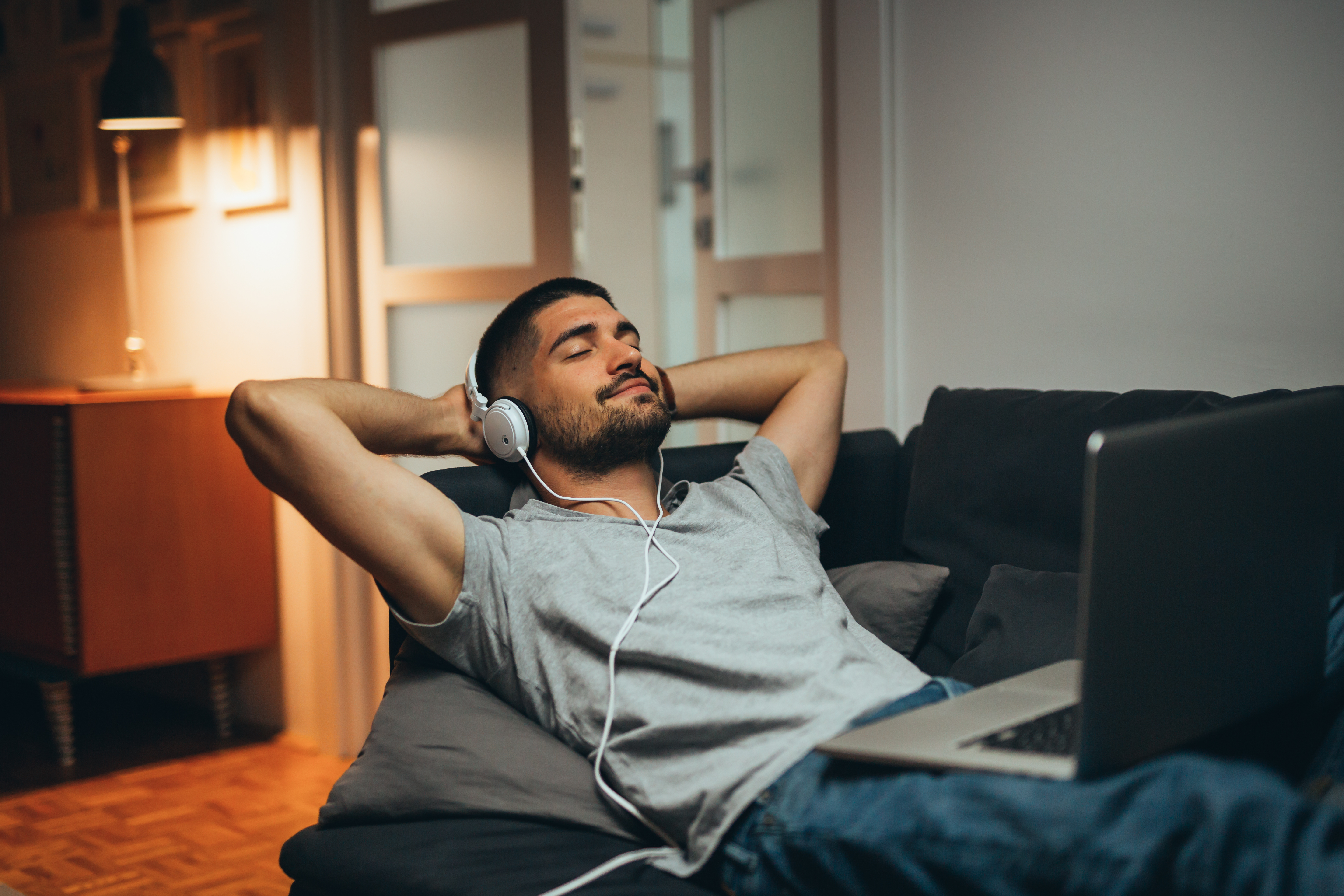 If your mind is racing before bed, music can be a great way to help you unwind. It has the ability to reduce stress, ease pain, and lift your mood. In fact, a study found that 54% of participants reported falling asleep faster after listening to music. Many of them described experiencing a sense of physical and mental relaxation, which made it easier to drift off. The genre doesn't matter as long as the music helps you relax, so feel free to create a sleep playlist based on your personal preferences.
If your mind is racing before bed, music can be a great way to help you unwind. It has the ability to reduce stress, ease pain, and lift your mood. In fact, a study found that 54% of participants reported falling asleep faster after listening to music. Many of them described experiencing a sense of physical and mental relaxation, which made it easier to drift off. The genre doesn't matter as long as the music helps you relax, so feel free to create a sleep playlist based on your personal preferences.
7. Prepare your bedroom
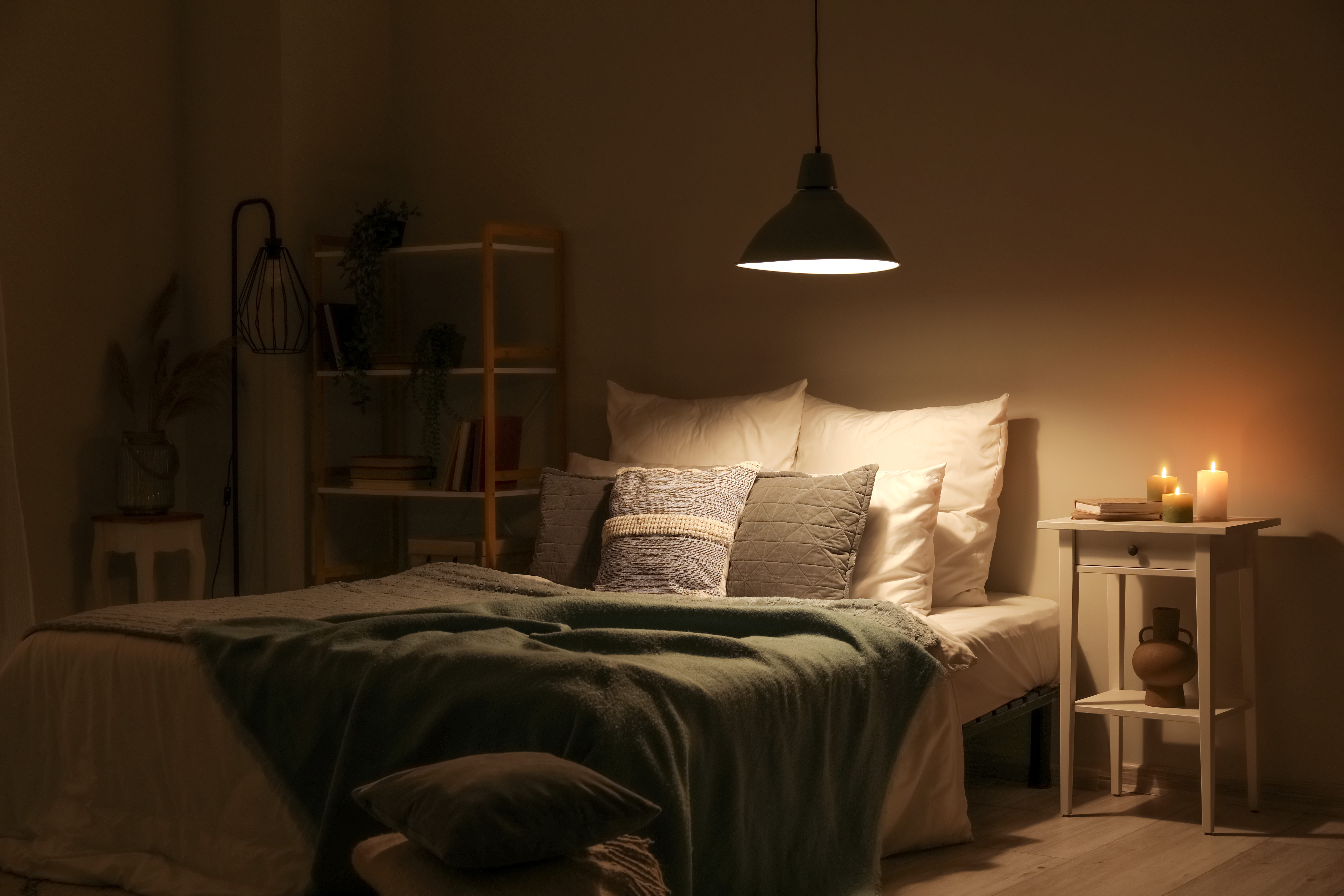 Transforming your bedroom into a sleep-friendly sanctuary is an important part of your bedtime routine. Aim to create an environment that is cool, dark, and quiet. Set the thermostat between 65 and 68 degrees Fahrenheit, dim the lights, and close your blackout curtains to block out any light. Tidy up and clear away any clutter, then add a calming touch with your favorite scent using an aromatherapy diffuser. The final step in your routine is to get into bed. This should be the very last thing you do before attempting to sleep. Once you lie down, focus solely on falling asleep—avoid engaging in any other activities. Your bed should be a peaceful, dedicated space solely for rest.
Transforming your bedroom into a sleep-friendly sanctuary is an important part of your bedtime routine. Aim to create an environment that is cool, dark, and quiet. Set the thermostat between 65 and 68 degrees Fahrenheit, dim the lights, and close your blackout curtains to block out any light. Tidy up and clear away any clutter, then add a calming touch with your favorite scent using an aromatherapy diffuser. The final step in your routine is to get into bed. This should be the very last thing you do before attempting to sleep. Once you lie down, focus solely on falling asleep—avoid engaging in any other activities. Your bed should be a peaceful, dedicated space solely for rest.
